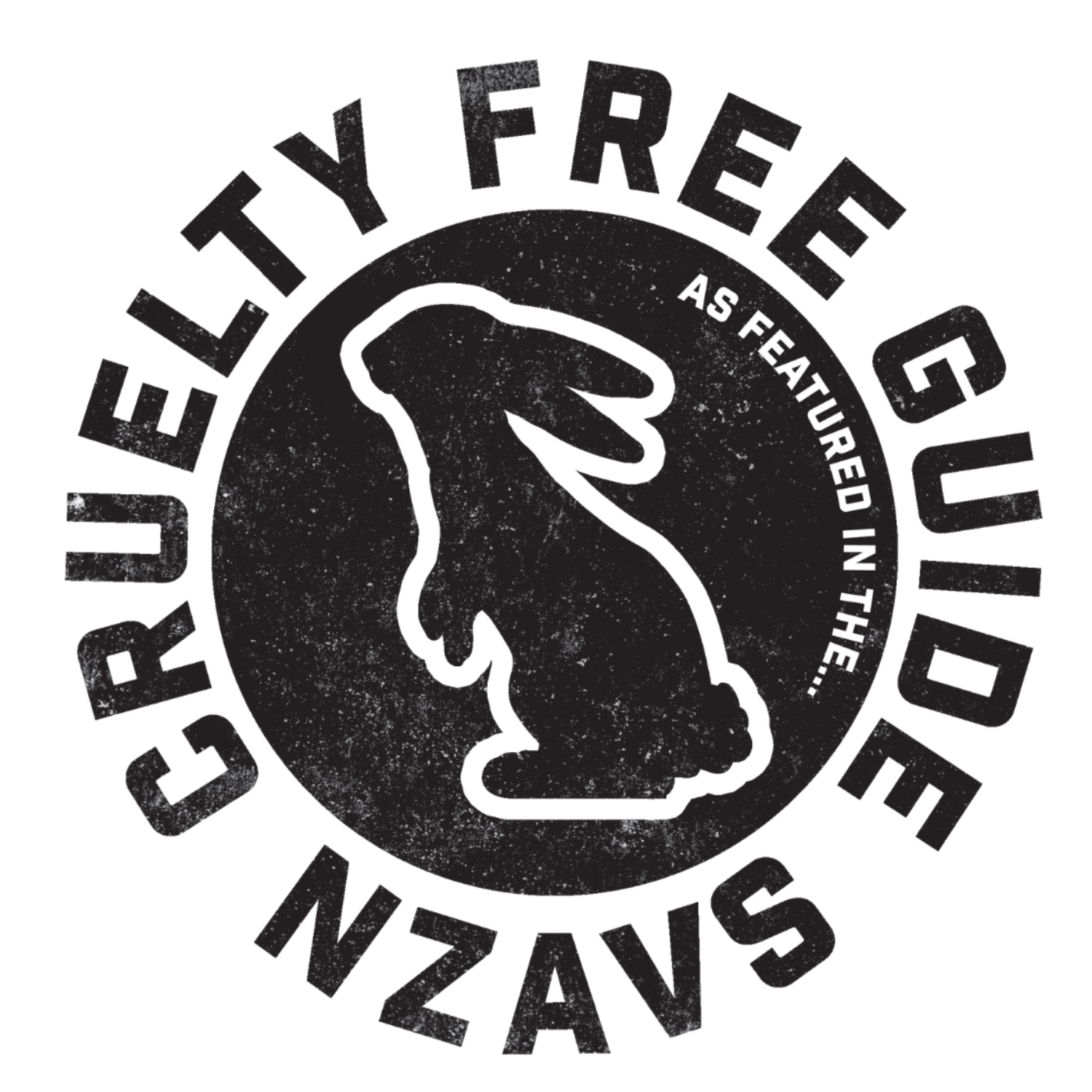Introduction In today's world, where consumers are becoming more conscious of their choices and their impact on the world, being cruelty-free is more than just a trend—it's a moral imperative. At The INCI Lab, we are committed to providing high-quality beauty products that are not only effective but also ethically produced. We are proud to announce that we are listed in the New Zealand Anti-Vivisection Society's (NZAVS) Cruelty-Free Guide, a testament to our dedication to ethical practices.
The Ethical Implications
Animal testing is an outdated and inhumane practice. Millions of animals suffer in laboratories around the world, subjected to painful procedures and confinement. By choosing cruelty-free products, you are taking a stand against animal cruelty and supporting humane alternatives. This is not only a more ethical choice but also one that aligns with a growing global movement towards compassion and sustainability.
The Science Behind Cruelty-Free
Advancements in science and technology have provided us with numerous alternatives to animal testing. In vitro testing, computer modeling, and human volunteer studies are just a few methods that have proven to be effective and reliable. These alternatives not only spare animals from suffering but also often provide more accurate and relevant results for human applications. By supporting cruelty-free companies, you are also promoting innovation and progress in scientific research.
Consumer Demand for Ethical Products
Today's consumers are more informed and passionate about ethical consumption than ever before. A significant number of beauty product users are actively seeking out brands that align with their values, including cruelty-free practices. By choosing cruelty-free products, you are making a statement about the kind of world you want to live in—one that respects and protects all living beings.
Regulatory Trends
Globally, there is a significant shift towards banning animal testing for cosmetics. The European Union, India, Israel, and several other countries have already implemented bans on animal testing for beauty products. As the regulatory landscape continues to evolve, being cruelty-free is not only ethically responsible but also increasingly becoming a legal requirement.
The History of Animal Testing in Beauty
Animal testing in the beauty industry has a long and controversial history. Initially, it was introduced as a means to ensure product safety for human use. However, over the decades, awareness of animal rights and the development of alternative testing methods have led to a significant shift in public perception and industry practices. Key milestones include the establishment of the Draize test in the 1940s and the subsequent pushback from animal rights organizations in the 1980s and beyond.
Alternatives to Animal Testing
There are several viable alternatives to animal testing that have been developed in recent years. These include in vitro testing, which uses human cells and tissues, computer modeling that predicts human reactions based on existing data, and human volunteer studies where products are tested under strict ethical guidelines. These methods are not only humane but also often more reliable and relevant to human biology.
Benefits of Cruelty-Free Products
Choosing cruelty-free products comes with numerous benefits. Ethically, it aligns with a growing movement towards compassion and sustainability. For consumers, it builds trust and loyalty, knowing that their purchases do not contribute to animal suffering. For companies, it can lead to market growth as more consumers seek out ethical brands. Additionally, cruelty-free products often leverage innovative testing methods that can enhance product safety and effectiveness.
Cruelty-Free Certifications
Several certifications help consumers identify cruelty-free products. Notable ones include the Leaping Bunny certification, PETA's Beauty Without Bunnies program, and the Cruelty-Free International certification. These certifications ensure that products and their ingredients are not tested on animals, providing consumers with confidence in their ethical choices.
How to Identify Cruelty-Free Products
Identifying cruelty-free products involves looking for specific labels and certifications on packaging. Trusted brands will often prominently display their cruelty-free status. Additionally, resources like the NZAVS Cruelty-Free Guide and online databases can help consumers verify the cruelty-free status of their favorite products and brands.
The Role of Advocacy Groups
Advocacy groups play a crucial role in promoting cruelty-free practices. Organizations like the New Zealand Anti-Vivisection Society (NZAVS), Cruelty-Free International, and PETA work tirelessly to raise awareness, influence legislation, and support the development of alternative testing methods. Their efforts have been instrumental in driving the global shift towards cruelty-free beauty.
The INCI Lab's Commitment to Cruelty-Free Practices
At The INCI Lab, our commitment to being cruelty-free is unwavering. We believe in creating beauty products that not only enhance your natural beauty but also do no harm to animals. Our inclusion in the NZAVS Cruelty-Free Guide is a proud moment for us, reflecting our dedication to ethical practices. We continually seek out the latest advancements in alternative testing methods to ensure our products are both safe and cruelty-free.
Case Studies of Cruelty-Free Brands
Several brands have successfully adopted cruelty-free practices and thrived in the beauty industry. Brands like Lush, The Body Shop, and e.l.f. Cosmetics are industry leaders in ethical beauty. Their commitment to cruelty-free practices has not only garnered consumer trust and loyalty but also set a standard for other brands to follow.
The Future of Cruelty-Free Beauty
The future of cruelty-free beauty is promising. With increasing consumer demand, continued advancements in alternative testing methods, and evolving regulatory landscapes, the industry is moving towards a future where animal testing is obsolete. Emerging trends include the development of entirely vegan and cruelty-free product lines, further aligning with ethical consumer values.
Common Misconceptions About Cruelty-Free Beauty
There are several misconceptions about cruelty-free beauty, such as the belief that these products are less effective or more expensive. In reality, cruelty-free products often leverage innovative and advanced testing methods that can enhance their quality and effectiveness. Additionally, with the growing demand for ethical products, many cruelty-free options are competitively priced.
Cruelty-Free vs. Vegan Products
It's important to distinguish between cruelty-free and vegan products. Cruelty-free means that the product and its ingredients have not been tested on animals. Vegan, on the other hand, means that the product does not contain any animal-derived ingredients. While there is overlap, a product can be cruelty-free but not vegan, and vice versa. Consumers should look for both labels if they want products that are both ethical and free of animal ingredients.
How to Support Cruelty-Free Initiatives
Supporting cruelty-free initiatives can be done in several ways. Consumers can choose to buy only from cruelty-free brands, support legislation that bans animal testing, and educate others about the importance of cruelty-free practices. Additionally, supporting advocacy groups through donations or volunteering can help drive the movement towards a cruelty-free future.
FAQs
What does it mean for a product to be cruelty-free? A cruelty-free product is one that has not been tested on animals at any stage of its development, including its ingredients.
How can I identify cruelty-free products? Look for certifications such as Leaping Bunny, PETA's Beauty Without Bunnies, and Cruelty-Free International, and NZAVS Cruelty-Free Guide



